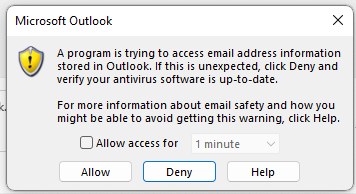There are several types of business email services available in Australia, each with its own unique features and benefits. We list the top 3, their benefits and drawbacks.
- Microsoft 365 Email: Microsoft 365, previously known as Office 365, is a comprehensive suite for managing emails, tasks, calendars, and contacts. It offers a more personalized and organized inbox with helpful features. It’s accessible from anywhere, ensuring you stay connected whether you’re using Outlook on your work PC or the app on your smartphone.
- Google Workspace (G Suite): Google Workspace offers a flexible and innovative solution for business or personal use that includes all of your favorite apps like Gmail, Calendar, Drive, Docs, Meet, and more. It provides secure business email as a foundation, you can also chat, make voice or video calls, and stay on top of project work with shared files and tasks.
- IMAP Webhosted Services: These IMAP webhosted e-mail services are very basic in what they achieve. They store emails directly on the server, which can pose issues if you are offline and need to access older archived mails. Depending on your connectivity, managing your mailbox can be difficult when mailboxes get to a larger size.
There are also several competitors in the market such as Zoho Mail, Mail.com, Tutanota, Mailfence, and others like Constant Contact, Sendinblue, Omnisend, HubSpot, AWeber which offer robust features and benefits.
Microsoft 365 Email: Microsoft 365, previously known as Office 365
There are several reasons why Microsoft 365 stands out as the superior business email option. Microsoft email services are available as Microsoft 365 Business Standard, Microsoft 365 Business Premium, Microsoft Exchange online and Business Enterprise packages etc.
- Superior Features and Functionality – Microsoft 365 offers a more personalized and organized inbox with helpful features. It adapts to your work style, enabling you to get more done, faster. With Add-ins, Microsoft 365 offers powerful customization and extensibility. It also organizes your time with a calendaring system that goes beyond basic scheduling of appointments and commitments.
- Accessibility and User-Friendliness – Microsoft 365 is accessible from anywhere, ensuring you stay connected whether you’re using Outlook on your work PC or the app on your smartphone. It also helps make sense of your emails with features like conversation view.
- Compatability with Outlook – The most important thing to note here is that Exchange and the Outlook mail client integrate seamlessly, whereas using Gmail and Outlook together can be troublesome. If your company relies on Outlook, the difference in compatibility may be reason enough to go with Exchange. Outlook runs smoothly if you want to check and write emails offline with Exchange, but the client often fails to load emails offline when connected to Gmail.
- Security – Microsoft 365 email protection includes a range of features designed to safeguard your organization’s email communication. These features include:
- Email Encryption: Microsoft 365 offers email encryption, which helps protect confidential information.
- Prevent Forwarding: You can prevent forwarding of your emails, ensuring that only the intended recipient can view your message.
- Protect Files in Personal Vault: You can store sensitive files securely in the Personal Vault.
- Password-Protected Links: You can password-protect files you share, adding an extra layer of security.
- Recover Files from Malicious Attacks: Microsoft 365 alerts you of a ransomware or malicious attack and helps you restore your OneDrive files.
- Advanced Protection from Viruses and Cybercriminals: Microsoft 365 provides advanced protection from viruses and cybercrime. Microsoft 365 Business Premium includes security and device-management capabilities, along with productivity features such as Office apps. Understanding and implementing these features can significantly reduce the risk of email-related cyber threats and protect your organization’s sensitive data.
- Advanced Security Add ons such as Microsoft Intune, Defender and Azure Information Protection offer Advanced security, Access and data control and Cyberthreat protection
- Privacy: Microsoft 365 Email is by far the more private hosted email option. Microsoft explicitly states that all data transferred through Exchange is not used for ad targeting, and this service is designed to be fully HIPAA-compliant
- Support – Google and Microsoft each offer 24/7 phone and email support for their hosted email services. That said, you’ll probably have better luck resolving issues with Microsoft. An Exchange subscription allows you to talk to IT technicians rather than just service representatives, like you get with Google. If your email ever does go offline for any reason, having support you can rely on is incredibly important.
- Storage – All Exchange users get 50 GB of inbox space, compared to just 30 GB for Gmail users with a basic account. On top of that, Exchange enables you to send emails up to 150 MB in size, whereas Gmail will force you to send Google Drive links to any files larger than 25 MB.
Google Workspace (G Suite)
Google Workspace offers a flexible and innovative solution for business or personal use that includes apps like Gmail, Calendar, Drive, Docs, Meet, and more. It provides secure business email as a foundation, you can also chat, make voice or video calls, and stay on top of project work with shared files and tasks.
- Pricing between Google and Microsoft services is competive
- Google’s apps such as Gmail, Calendar, Drive, Docs, Meet are all browser-based applications
- Gmail integration with Microsoft apps (such as Outlook) can be problematic
- Docs is comparable with OneDrive but not provide the same business-specific features and security as Microsoft SharePoint
- A Microsoft Exchange subscription allows you to talk to IT technicians rather than just chatting with a Google service representative
- One major concern that many businesses have about Gmail is privacy. Google is notorious for using data from Gmail, including from business email accounts, to serve ads to users. If your business works with sensitive data
IMAP Webhosted Services
Website owners may be already use a free or paid IMAP “professional” email service connected to your website’s business domain. These IMAP webhosted e-mail services are inexpensive and very basic in what they achieve. The largest Webhosted email providers include Webcentral, Go Daddy and Crazy Domains
- Webhosted email services store emails directly on the server, which can pose issues if you are offline and need to access older archived mails.
- Mailbox sizes are often small starting as small as 500MB
- Depending on your connectivity, managing your mailbox can be difficult when mailboxes get to a larger size.
- While IMAP allows access to emails from any device, your online and offline mailboxes may look different. This can lead to confusion and inefficiency.
- Both POP and IMAP protocols used by webhosted services are insecure and easily hacked
When is Microsoft 365 Email NOT Microsoft 365 Business Email?
Webcentral, Go Daddy and Crazy Domains also offer their own versions of Microsoft 365 Business email plans with sketchy names such as Microsoft 365 Email Essentials, Microsoft 365 Email Plus, Microsoft 365 Online Business Essentials at prices that appear to be cheaper than Microsoft are offering.
But beware, these are often cut-down version of the Microsoft Packages.
Always purchase the Microsoft Services (Microsoft 365 Business Basic, Microsoft 365 Business Standard, Microsoft 365 Business Premium etc.) directly from Microsoft or one of their authorised representatives.
Microsoft 365 Email: The Best for Business Emails
In conclusion, Microsoft 365, previously known as Office 365, is a champion of enterprise, cloud-based productivity suites. It offers businesses a multitude of tools, applications, and features designed to enhance the user’s ability to work, collaborate, and communicate. One of its key components is Microsoft Outlook, a comprehensive suite for managing emails, tasks, calendars, and contacts.
To discuss Microsoft pricing options or an e-mail migration project or setting up a new domain and mailboxes, contact us for a quotation.
Business Email Options
Further Help


